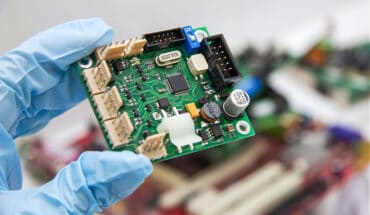Every year in the UK around 100,000 new cases of stroke with arm weakness are diagnosed. An even larger number of people are afflicted by arthritis or other diseases affecting arm function. Often these problems impair people’s ability to carry out daily activities, requiring long-term care.
Physiotherapy is an essential mainstay of treatment for both sorts of problem, and can help people recover much more control, but unfortunately is expensive to deliver. Many people may only have physiotherapy for a few weeks.
Here at Imperial College London, we have developed a simple device that can be used by patients in their own homes, allowing them to gradually strengthen their arms and shoulders by playing physiotherapy-like computer games. My team collaborated with the Human Robotics Group at Imperial College London to develop the device.
The low-cost invention, called gripAble™, consists of a lightweight electronic handgrip, which interacts wirelessly with a standard PC tablet to enable the user to play arm-training games. You can literally use it while sitting up in bed or sitting at a table.
To use it, patients squeeze, turn or lift the handgrip, and it vibrates in response to their performance whilst playing. The device uses a novel mechanism, which can detect the tiny flicker movements of severely paralysed patients and channel them into controlling a computer game. The patient can also wear a band around their forearm which allows the software to ‘see’ where the wrist is and whether it is bending forwards, backwards or to the side. The band can be worn above the elbow to help patients who need to exercise their shoulder muscles.
One of the games is steering a rocket through a shower of meteorites. It can be calibrated for a patient who can only move the tip of their fingers a few millimetres or for those who can use their wrists and elbows. It can also be adjusted as a patient becomes stronger, stretching them to achieve more movement, which is exactly what a physiotherapist would do in person.
Since most people who suffer a stroke tend to be older, we have designed games that will also appeal to technophobes. One requires the user to squeeze repeatedly to slowly reveal a photograph.
In a new study published in PLOS ONE, we reported our findings of a trial involving successive stroke patients who had suffered strokes with arm paralysis at Imperial College Healthcare NHS Trust over six months. We found that using the device increased the proportion of paralysed stroke patients able to direct movements on a tablet screen by 50 per cent compared to standard methods. In addition, the device enabled more than half of the severely disabled patients in the study to engage with arm-training software, whereas none of the patients were able to use conventional control methods such as swiping and tapping on tablets and smartphones.
The success of the device was most apparent for patients with severe arm weakness: no patients in this group were able to use conventional controls to play training games, whereas 58 per cent could use gripAble™.
Over five million people in the UK live with arm weakness – approximately one million of them following a stroke, plus others who have neurological and musculoskeletal conditions. Arm weakness contributes to physical disability that requires expensive long-term care. For example, treatment for stroke costs the NHS £9 billion a year, which is five per cent of the total NHS budget. The only intervention shown to improve arm function is repetitive, task-specific exercise but this is limited by the cost and availability of physiotherapists.
Unlike other therapies currently on the NHS, gripAble™ is a low-cost device which can be used in hospitals and independently by patients at home. As such it could potentially help save the health service millions of pounds. We now intend to commercialise the device, and conduct large-scale clinical trials to demonstrate its effectiveness when used for months.”
The gripAble™ device is an example of the work of the Imperial Academic Health Science Centre (AHSC). This is a partnership between Imperial College London and three NHS Trusts, which aims to improve patient outcomes by harnessing scientific discoveries and translating them as quickly as possible into new diagnostics, devices and therapies, in the NHS and beyond. The researchers have now spun out gripAble™ as a digital healthcare start-up to commercialise the device.
- Gaming for stronger arms - 5th October 2016







